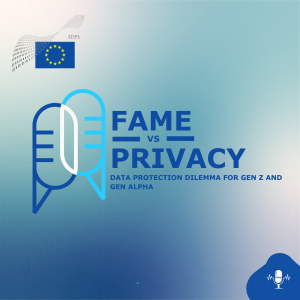
Are alternative social media platforms a possible solution to protect young people online?
In this third and final episode, find out more about federated social media platforms, their differences between centralised and decentralised platforms and privacy implications, with Francesco Albinati, Digital Media Coordinator at the EDPS; and Robert Riemann, Technology and Privacy Officer at the EDPS. They will introduce you to two social media platforms, EU Voice and EU Video, which the EDPS launched last year as additional communication channels.
In addition, Konstantina Vemou, Technology and Privacy Officer at the EDPS, will discuss the future social connection in virtual realities and their foreseen impact from a technological point of view, since they determine the general digital transformation in every aspect of our physical lives.